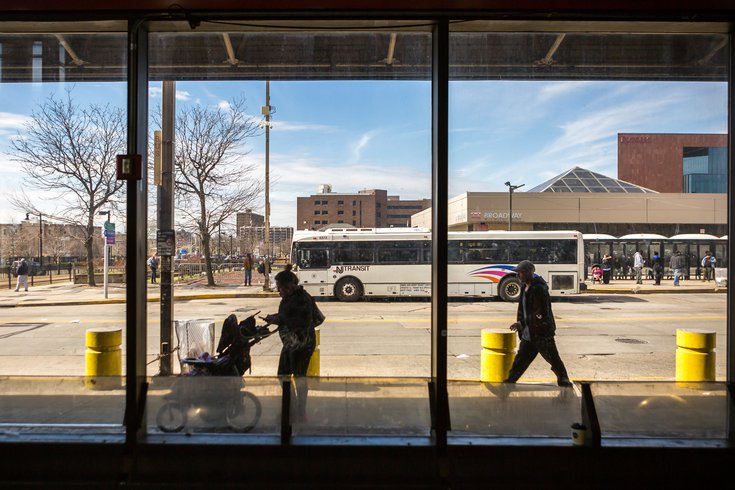
March 13, 2023
 Thom Carroll/For PhillyVoice
Thom Carroll/For PhillyVoice
New Jersey Transit riders now can use cash to purchase electronic bus, train and light rail tickets on the NJ Transit app. The electronic fares can be purchased at more than 1,000 retailers, including Walgreens, CVS and 7-Eleven.
New Jersey Transit riders no longer need to use a credit or debit card to purchase electronic fares on the NJ Transit mobile app. Instead, these fares can be purchased with cash at more than 1,000 stores.
The alternative payment method, rolled out last week, aims to expand access to people without bank accounts and reduce the number of paper bus, train and light rail tickets. The first 2,000 people to utilize the feature will receive a $5 credit toward NJ Transit tickets and passes within 30 days of signing up for the app.
To purchase electronic fares with cash, riders must download the app and showing a sales clerk the barcode that appears on the screen. There is no fee associated with using cash payments.
The fares can be purchased at retail outlets like 7-Eleven, Walgreens, CVS and Family Dollar. They cannot be bought at NJ Transit terminals or stations. Riders who do not have smartphones will need to continue using paper tickets.
"This mobile app upgrade represents a significant leap forward in NJ Transit's fare modernization program, leveraging technology to add yet another option for customers to purchase tickets and passes," said Kevin S. Corbett, NJ Transit president and CEO. "It also promises to further reduce cash and paper-based tickets, and takes advantage of a statewide retail network to expand access to transit, particularly for the unbanked."
Public transportation advocates have called the move a good first step for an "underserved community" of riders, NJ.com reported.
Your phone is your key to transit! Download the NJ TRANSIT Mobile App to buy your tickets, get schedule info, alerts and so much more.
— NJ TRANSIT (@NJTRANSIT) March 8, 2023
📲 Download now: https://t.co/CWauOd9aRQ pic.twitter.com/dGEVC3OElM
The cash payment option was recommended by the Tri-State Transportation Campaign in its proposed bill of rights in 2019. The document, which notes that New Jersey is the most densely-populated state in the country, also recommended using fares that meet the needs of all customers, regardless of socioeconomic status or disability, with less frequent fare hikes.
The cash payment option was part of a larger bus system proposal from 2019, in which stakeholders from the Tri-State Transportation Campaign sought to redesign the bus network and design streets to prioritize public transportation. That plan also called for reloadable fare cards and other payment options in lieu of cash.
Allowing cash payments puts NJ Transit in a unique position among its neighboring transit agencies. The Metropolitan Transportation Authority, based in New York City, has sought to replace cash payments entirely with reloadable cards. SEPTA only allows debit and credit card payments through its app.
NJ Transit is working to create its own system of reloadable cards. They are expected to be available by the end of 2024. The chip cards would provide tap-and-go payment on buses and can be read by scanners used on NJ Transit trains, NJ.com reported.
Initially planned to allow riders without access to debit or credit cards to utilize the mobile features of the NJ Transit app, the cards would work similarly to a SEPTA Key card or New York City's OMNY cards, though they will not be transferable to either system.
NJ Transit's mobile app, launched in 2013, has been downloaded more than 8.6 million times and has an estimated 4 million customer accounts created.